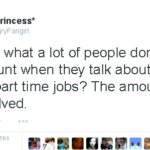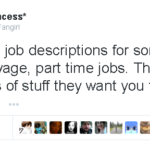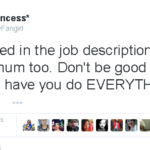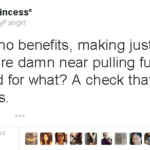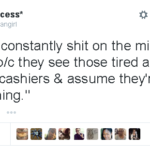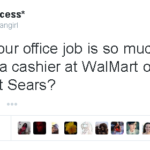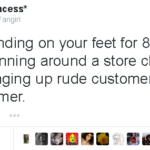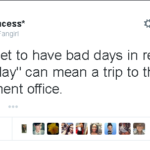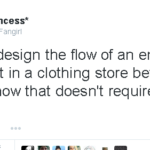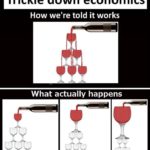i hope youre all lying and hyping your cv/resume’s up
i have never gotten an interview and not been offered a job position after it
I mean lets be honest if everyone else is gassing theirs up like no tomorrow and you’re being as honest as you can who th are the recruitment team going to be more interested in
There’s people working in my banks head office with me WITH MUCH MORE EXPERIENCE than me BUT ARE GETTING PAID LESS
we’re doing the exact same job role
the point I’m trying to make here is if you’ve handled finances for a company you’re now what i would call a treasurer my g, if you’ve done admin work you are now a secretary (or as I’ve put Management secretary)
you help some kid with his homework? you’re a private tutor.
keep your bullets points for the job role as concise and important sounding as possible AND ALWAYS EMPHASIS THAT YOURE A TEAM PLAYER IF YOURE GOING TO WORK IN A TEAM.
go into that interview room and get your story straight the night before and remember that interviews are two way conversatons yes they might be grilling you but at the end of it make sure to grill them BACK. do you have any hesitations about my qualifications? my suitability for the job? any feedback on my cv? how long have you been working at this company? do you like it here? whats the work environment like?
I ALWAYS ALWAYS ALWAYS GET THE SAME FEEDBACK WHEN THEY GET BACK IN TOUCH WITH ME
“ive never been asked those questions before” / “you were one of the strongest candidates”
throughout the interview emphasise that youre about progression, that you want more responsibilities than you did at your previous job, tell them the hours here are more suitable for me than my last ones were, AND WHEN IT COMES TO SALARY NEGOTIATION its all about continuity. tell them again that it boils down to progression. make up a reasonable figure for how much you were paid in your last role (do your research for how much the industry youre applying to or the role youre applying for pays, base it on that) tell them you expect more than you were previously paid. do not give them a figure. progression is your primary focus, tell them if youre progressing youre happy. leave it at that.
LIE THROUGH YOUR TEETH AND GET THAT MONEY
I had an interview yesterday, at the place I’ve been temping, where I busted out the “is there anything about my skills or background that makes you concerned about my fit for this job” question for the first time.
Neither of my supervisors had never gotten it before either. They had to think for a while, and then it turned into them telling me how great I am and what they love about me.
This stuff is real. I would also say: none of it is lying. This is taking experience that you normally downplay and write off, and putting it in accurate words they’ll understand.
It’s hacking the capitalist system. Why ISN’T helping a kid with homework “tutoring”, when the only thing missing is a paycheck?
It’s especially important for anyone who isn’t a cis white man, because many of us are so thoroughly trained to feel like we are not good enough.
Privilege tells people they can fake it, and that they’re good enough just as people and can learn the skills on the job. Abuse and oppression tell people they aren’t good enough as people and that even their high skills are probably below average, and that unless they had the specific job title or were using certain skills officially, nobody will think it counts.
The goal is to at least fake the confidence of a privileged person, to give the employer a chance at seeing the skills that you’ve been trained to undervalue.
I would also say to answer any query of “Have you done [X small task] before?” with “I have, but it’s been a while.” Or, “I have, but it was a slightly different program.”
100% THEY WILL GLADLY WALK YOU THROUGH EVERYTHING YOU NEED TO KNOW, and I stress ‘gladly’ because claiming prior knowledge boosts their confidence in your abilities and any slips you make are already covered by your caveat.
blackstoic may have deactivated their account but this advice is fucking gold and all y’all looking for jobs or who think you might one day need to look for a new job PRINT THIS SHIT OUT AND STAPLE IT TO THE WALL.
All of this is true as fuck. Volunteer work is still work, so if it applies to the job, IT COUNTS. And remember that ultimately the resume is just an advertisement to get past any gatekeepers to the interview, where your personality can shine through and the hiring managers can make their own decisions. Keep it to a very relevant page or two, and remember that no one remembers the details of your resume long-term. Just don’t lie wholesale about any skills or experiences that could come back to bite you (college degrees, specific/particular tech tools).
And as the OP said, go into the interview with several (4-7) clear narratives in mind of times you accomplished something in either your personal or professional life. Think about overcoming challenges, working in teams, moving past your own shortcomings, or hitting/exceeding set goals, particularly in areas directly related to the work you want to be doing. During your interview prep, establish these stories in a three-to-five sentence Situation-Obstacle-Solution format.
When you’re asked questions during the interview, try to fit your established accomplishment stories into the answers. This helps the interview feel more conversational, brings hiring managers along with your journey in an invested way, and keeps you from feeling like unmoored. You can focus more on connecting and less on what you’re trying to say.
Go get your coins.

